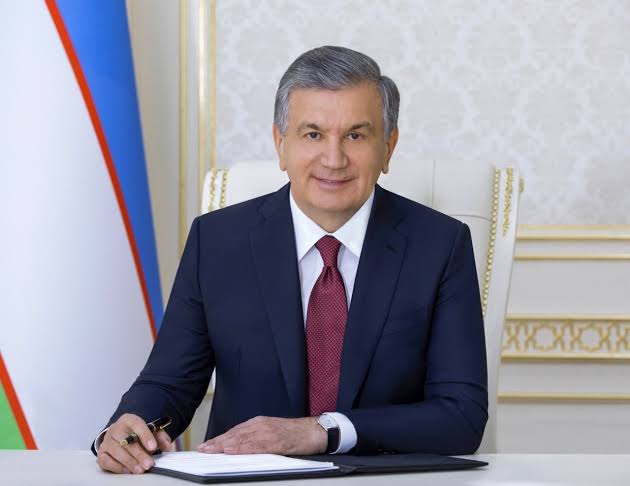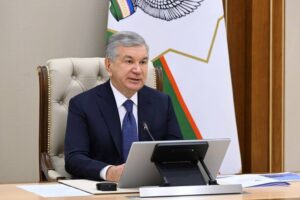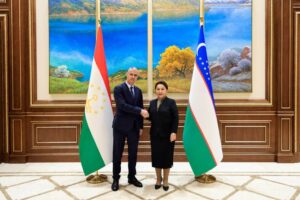Uzbekistan: Civil Society is Seen as the Basis of a Democratic State

Today, in order for each country to have a worthy place in the world community, as well as a system of democratic governance, economic stability, the rule of law and human rights, it is important to create conditions for the development of civil society institutions.
In recent years, the legal basis for the formation and development of civil society in our country has been strengthened. In particular, more than 200 legal documents in this area have been adopted, including the laws “On Public Associations”, “On Non-Governmental Non-Profit Organizations”, “On Public Funds”, “On Social Partnership”, “On Public Control”.
Also, the number of non-governmental non-profit organizations in the country is growing exponentially. Currently, there are more than 9 thousand non-governmental non-profit organizations operating in Uzbekistan.
In the Constitution of the Republic of Uzbekistan, civil society institutions, including public associations and other non-governmental non-profit organizations, self-government bodies of citizens, and the media form the basis of civil society. The state ensures compliance with the rights and legitimate interests of non-governmental non-profit organizations, and also provides equal legal opportunities to participate in the life of society.
In some foreign countries, including Germany, in the field of civil society and increasing its activity, attention is paid to the citizen as an important target for the development of the non-state sector.
In our country, in this regard, special attention is paid to improving non-governmental non-profit organizations, and in this process it is envisaged to increase the activity of citizens.
According to the laws “On guarantees for the activities of non-governmental non-profit organizations”, “On social partnership” and other regulatory legal documents, the task of supporting non-governmental non-profit organizations in the form of government subsidies, grants and social orders is assigned to the Public Fund under the Oliy Majlis.
The Decree of the President of the Republic of Uzbekistan dated October 4, 2021 “On approval of the Concept for the Development of Civil Society for 2021-2025” No. PF-6181 provides for the amount of support for non-governmental non-profit organizations and other civil society institutions in the form of government subsidies, grants and social orders in 2021. an increase of at least 1.2 times. Based on the results of the analysis, during this period the volume of support for non-governmental non-profit organizations increased 3 times, and the fulfillment of the task provided for by the Decree was ensured. According to the fund, during 2017-2023, 3,733 programs and projects of non-governmental non-profit organizations were financed from the state budget.
The readiness and desire of the state to support public initiatives serve to increase the activity of civil society institutions in society and public administration. In this regard, the activities of the Family and Women’s Committee of the Republic of Uzbekistan, the Mahalla and Nuroniy foundations, the national movement Yuksalish, the Youth Union and other public organizations should be noted.
During 2017-2023, the volume of funds allocated in the form of government subsidies to programs of non-governmental non-profit organizations not related to social projects increased 60.5 times, and the number of non-governmental non-profit organizations receiving government subsidies increased 8 times.
As a result of measures implemented in Uzbekistan to develop civil society in this direction, significant results are being achieved.
The increasing activity of non-governmental non-profit organizations in our country, the expansion of their activities in state and public administration serve to realize the desire of our people to build a free, prosperous and powerful New Uzbekistan. It aims to create every opportunity for every citizen to develop their potential, raise a healthy, educated generation, create a strong economy that has become an important link in global production, ensure justice, the rule of law, security and stability and, ultimately, to further strengthen human dignity .
And most importantly, within the framework of the Uzbekistan-2030 Strategy, measures are being implemented aimed at expanding the participation of civil society institutions in the process of state and social construction. According to the document, it is envisaged to carry out reforms aimed at further developing a free civil society and the activities of the media, transforming Uzbekistan into a hub for the development of civil society, improving the system for protecting the rights of the media, and increasing responsibility for obstructing their professional activities.
In addition, the following goals have been set: creating the necessary conditions for public participation in the activities of local councils, broad involvement of civil society institutions in them, gradual digitalization of their activities, consistent continuation of the policy of openness, guaranteeing the implementation of citizens’ rights to receive, use and disseminate information, increasing the number projects implemented in partnership by at least 3 times, increasing the number of non-governmental non-profit organizations participating in government programs to at least 80.
The protection of democratic values, human rights and freedoms, and legitimate interests of people should become a priority in the activities of civil society institutions. It can have real meaning only when it becomes a social value in the thinking of the individual and society.
In a word, the measures implemented in the country to improve the activities of civil society institutions from an organizational and legal point of view serve to strengthen national statehood, democratization, increase the socio-political and socio-economic activity of citizens, and strengthen legal mechanisms for ensuring human rights and interests.


